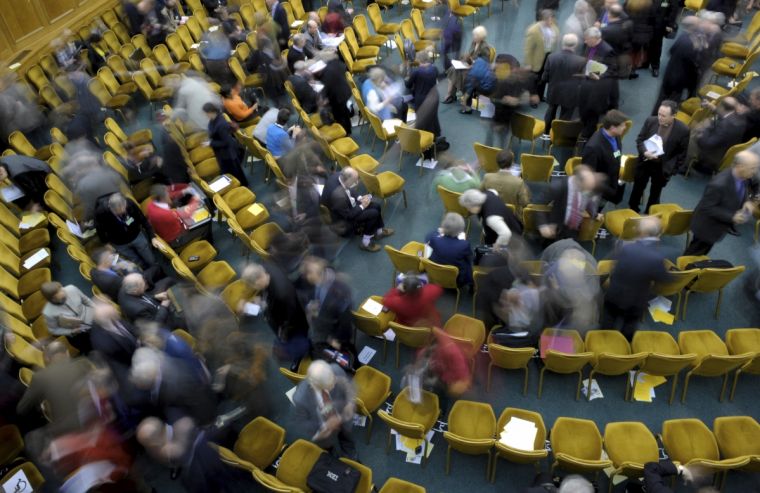Racial inequality in CofE 'has to be addressed', says Lord Boateng

Former government minister Lord Boateng has slammed the Church of England's General Synod for not being racially diverse enough.
Paul Boateng, chair of the Archbishops' Racial Justice Commission, opened a debate on the issue on the first day of the February meeting of the CofE's legislative body at Church House, Westminster.
Pointing to the Synod's platform on which the Archbishops of Canterbury and York were sitting flanked by officials, Lord Boateng said: "Look at this platform. The government front bench looks better than this platform. Oh yes, it is diverse – people of every colour, of every background."
Addressing the Synod as a whole, he said: "Your Parliament looks better in terms of diversity than you do."
Lord Boateng, who in 2002 became the UK's first black cabinet minister in the Labour government led by Tony Blair, told the Synod that racism is "a gaping wound in the body of Christ".
He paid tribute to the work of the CofE's Anti-Racism Taskforce, which published its report "From Lament to Action" last year.
"The most chilling thing about this report, the most concerning thing about this report, are the appendices, the long lists of previous recommendations which have not been implemented, promises made that have not been fulfilled.
"It is chilling, it is wounding, it is a scandal, and it has to be addressed," he said.
The 11-strong Racial Justice Commission set up by the Archbishops of Canterbury and York began work last October.
The CofE said it is "making recommendations to help the Archbishops fulfil their commitments to identify, respond to, and root out systemic racism in the Church".
The commission is due to publish its first interim report in May.
The Synod overwhelmingly voted on Tuesday to take note of the debate on racial justice.
In his presidential address to the Synod, Archbishop of Canterbury Justin Welby warned that a society that "forgets about God, that loses the sense that it needs God loses the profound call to see the wholeness of the individual human person".
"And without the church, without that community of faith, as the salt and light of that society, that society loses its way. Without God it cannot maintain a determining objective except power," he said.
He also argued that "a key lesson of Covid has been unequivocally that the illusion of individualism and atomisation is just that: it's an illusion".
"The very nature of a virus is that it is contagious or infectious – it needs many people to spread and thrive.
"It took that physical manifestation of connection for many of us to realise how we are connected in all sorts of other ways. From staying at home, to bulk buying supplies, to getting the vaccine, to wearing a face mask – the message was clear: our actions affect other people.
"We cannot do what we want without it having an impact somewhere else. Even when we stayed at home, however difficult – and however lonely – it was for many people, we did not live without an effect on others," he said.











